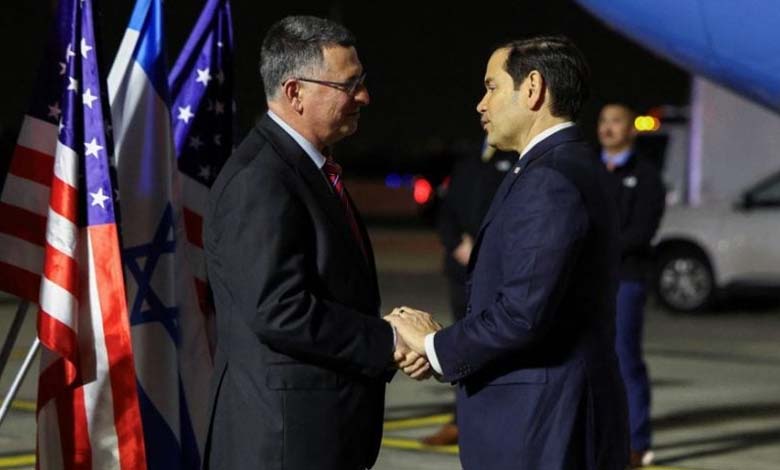Israeli Foreign Minister from Washington: There will be no Palestinian state

Israeli Foreign Minister Gideon Sa’ar stated on Wednesday that “there will be no Palestinian state,” delivering his clearest public stance since taking office.
He made the remarks to reporters after meeting in Washington with U.S. Secretary of State Marco Rubio, describing the encounter as “very positive.”
Sa’ar’s comments come as the Gaza issue is at the center of intense political activity led by U.S. President Donald Trump’s administration, focused on what is being called the “day-after plan” for ending the two-year-long war.
-
Israeli army approves guidelines for Gaza offensive
-
Israeli Army Preparing to Occupy Gaza City with a Quarter Million Soldiers
Trump chairs discussion on Gaza
For the first time, President Trump chaired an extensive meeting at the White House on the future of the Gaza Strip. Participants included his former Middle East envoy Jared Kushner, former British Prime Minister Tony Blair, and senior U.S. officials.
A senior White House official said the session addressed humanitarian and security matters, including boosting food aid, the hostage crisis, and establishing governance mechanisms for the post-war phase.
The official described the gathering as “just a political session,” the kind Trump often convenes, but added that the president is “determined to end the war and achieve peace and prosperity for all in the region.”
-
After Gaza: Questions over the Fate of Al-Mawasi and the Crowded Central Camps
-
Growing international opposition to Israel’s plan to occupy Gaza
Post-war plans
Israel’s Channel 12 reported that Kushner and Blair presented Trump with initial ideas on managing Gaza after the conflict. Their proposals included barring both Hamas and the Palestinian Authority from returning to power.
According to the channel, the plan—developed over months by U.S. envoy Steve Witkoff—would likely form a central component of any future diplomatic initiative, despite the immense challenges of rebuilding Gaza and establishing governance and security arrangements acceptable to all sides.
-
From 4 to 16: Details of a U.S. Plan to Expand Aid Centers in Gaza
-
UN conference on two-state solution convenes without the US and Israel
Ongoing escalation
These moves come as Israel’s war on Gaza, ongoing for two years, has claimed the lives of more than 62,000 Palestinians, according to estimates. The international community has so far failed to impose an immediate ceasefire due to repeated U.S. vetoes at the Security Council.
Despite U.S. political backing, Israeli Prime Minister Benjamin Netanyahu is facing mounting domestic pressure to present a clear vision for the post-war stage.
-
Gaza Truce: U.S. Positive Signal, Israeli Flexibility and a U.N. Alarm
-
Gaza Ceasefire Deal: Internal and Regional Pressures Shape the Limits of the Agreement
Sa’ar’s remarks underscore the hardline stance within the Israeli government, explicitly rejecting the idea of a Palestinian state—an approach that may complicate U.S. and international efforts to craft a broader political settlement.
These statements came less than an hour after Netanyahu made similar remarks during a ceremony in West Jerusalem marking the approval of 17 new settlements in the West Bank. He said: “I said it in Ofra 25 years ago, and I repeat it today: we promised to deepen our roots. I said we would prevent the establishment of a Palestinian state, and we are doing exactly that. I said we would build and hold on to our land and our homeland, and that is what we are doing.”












